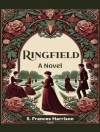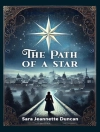Recent years have witnessed an explosion of interest in the ‘spatialities of cinema’ across the social sciences and humanities, yet to date critical inquiry has tended to explore this issue as a question of the ‘city’ and the ‘urban’. For the first time, leading scholars in geography, film and cultural studies have been drawn together to explore the multiple ways in ideas of cinema and countryside are co-produced: how ‘film makes rural’ and ‘rural makes film’. From the expanse of the American great west to the mountainous landscapes of North Korea, Cinematic Countrysides draws on a range of popular and alternative film genres to demonstrate how film texts come to prefigure expectations of rural social space, and how these representations come to shape, and be shaped by, the material and embodied circumstances of ‘lived’ rural experience.
At the heart of this volume’s varied apprehensions of the ‘cinematic countryside’ is a concern to argue that ideas of rurality in film are central to wider questions of ‘modernity’ and ‘tradition’, ‘self’ and ‘other’, ‘nationhood’ and ‘globalisation’, and crucially, ones that are central to an account of the ‘cinematic city’.
Cuprins
Introduction
1. What are these cinematic countrysides?
Robert Fish
Part I. Nations, borders and histories
2. Far from the fatal shore: finding meaning and identity in the rural Australian landscape
Jonathan Rayner
3. Nature and nation in North Korean film
Carol Medlicott
4. Mapping the nation and the countryside in European ‘films of voyage’
Maria Rovisco
5. Lurking beneath the skin: pagan landscapes in the popular imagination
Tanya Krzywinska
6. Militarised countrysides: representations of war and rurality in British and American film
Rachel Woodward and Patricia Winter
Part II. Mobile productions and contested representations
7. Mediating the rural: Local Hero and the location of Scottish Cinema
Ian Goode
8. ‘Imagination can be a damned curse in this country’: material geographies of filmmaking and the rural
Andy C. Pratt
9. Lord of the Rings and transformations in social-spatial identity in Aotearoa/New Zealand
Martin Phillips
Part III. Identity, difference and otherness
10. Idylls and othernesses: rural childhood in film
Owain Jones
11. Deviant sexualities and dark ruralities in The War Zone
Michael Leyshon Catherine Brace
12. Feral masculinities: urban versus rural in City Slickers and Hunter’s Blood
David Bell
Part IV. Mediating experience and performing alternatives
13. Amateur film and the rural imagination
Mark Neumann and Janna Jones
14. Amber and an/other rural: film, photography and the former coalfields
Katy Bennett and Richard Lee
Despre autor
Robert Fish is Research Fellow in the Department of Geography at the University of Exeter












